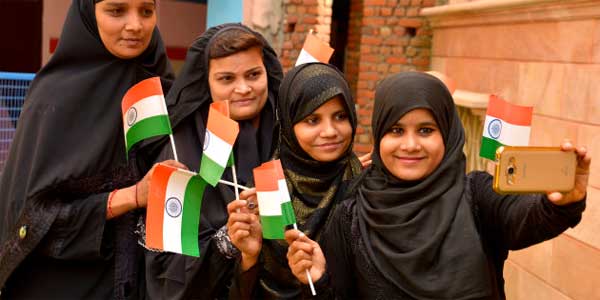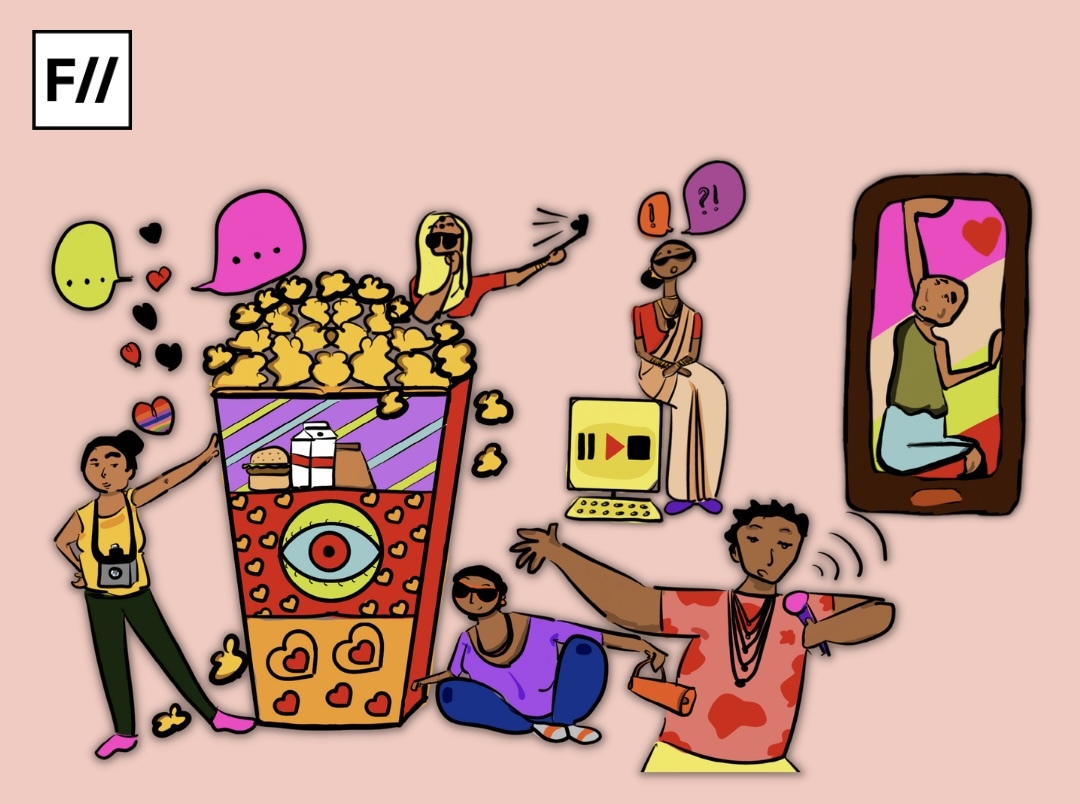Some months back I attended a program where Nejma Hepatullah was the chief guest. She was a good orator and controlled the audience with her story telling. People there went gaga over how she should be an idol for all the Muslim women in this country, neglecting of course, the privileged background she comes from and also how no person or community should be told who their idol should be.
It is not just Nejma Hepatullah, I study with many Muslim girls from privileged backgrounds, many of whom, leave no stone unturned to prove that they are not like other Muslim women. ‘The other Muslim women’ are actually the majority of Muslim women. Imagine a life where you have to fight patriarchy, poverty, get yourself educated while dismantling the stereotypes surrounding you – tough, isn’t it? That’s actually a reality for millions of Muslim women of this country.
How Education Remains The Biggest Issue
My mother teaches underprivileged girls, mostly Muslims. In her teaching experience of almost twenty years, she has seen uncountable Muslim women dropping out due to poverty. Once she saw a hardly 7 year old girl from the primary section working as a domestic help after school to assist her mother and that’s just the tip of the iceberg. Getting an education is certainly either a privilege or a struggle when you are an Indian Muslim woman.The recent data from NSSO reaffirmed that there is a high level of illiteracy among Muslims and the low level of general education trapping the community in a vicious cycle of poverty.
Imagine a life where you have to fight patriarchy, poverty, get yourself educated while dismantling the stereotypes surrounding you – tough, isn’t it?
You will find Muslim women fighting within and outside the community to reclaim their space. I am a law student and it was an exhausting task for me to understand the issues of triple talaq and polygamy in the light of both – law and religion. I wonder how hard it gets for a woman to defy manipulation and mansplaining without education – both modern and religious. The hypocrisy is that though the governments, especially the ruling government, show concerns for the Muslim women time and again, actually educating or training us never crosses their mind.
Also read: Beintehaa And Qubool Hai Resort To Tired Stereotypes Of Muslim Women
When NEET banned hijab, it was praised en masse not considering the conundrum it had put the practicing Muslim women in. A lot of medical aspirants who worked tirelessly for this exam were left in a perplexed state to choose between their career and their faith. NEET banning hijab was a classic example of the hypocrisy and the bogus concern this system has towards Muslim women’s education.
The Exclusion From ‘Feminism’
I built a white feminist temple. Now I’m tearing it down.
– Layla Saad
Feminism always baffled me – until I got introduced to intersectional feminism. Sadly, it is hard for people to accept Muslim women of faith or any women for that matter who are different from them. The ‘rigidity’ of our mindsets which has made a specific picture of how an ’empowered’ woman should be has made inclusion burdensome.
Getting an education is certainly either a privilege or a struggle when you are an Indian Muslim woman.
Muslim women should decide for themselves what feminism is and other men or women should not decide that for us. We can have our own idea of feminism which might not conform with your idea of feminism or of western feminism – or heck, we might not even want a badge of feminism on ourselves but will that make our issues any less important?
The Political Fallacy And Selective Rage
Prime Minister Narendra Modi while addressing the nation this Independence Day pointed out how he wants to provide justice to Muslim women. The same PM made Yogi Adityanath, a man who threatened to rape even dead Muslim women, the Chief Minister of Uttar Pradesh. If this does not make you cringe then what will? From Shah Bano to the Triple Talaq fiasco, Indian politics has failed Muslim women miserably.
From politicians to the society at large, there is a palpable selective outage in the country when it comes to the issues of Muslim women. Fatima Nafees, Zakia Jafri, Bilkis Bano, Ishrat Jahan, victims of the Kunan Poshora mass rapes and many more, are also Muslim women but the ones who do not fulfill the political agendas and thus are not talked about. When the system does this, it strips itself from the credibility and trust of the women of the community.
Also read: Can We Stop Stereotyping Muslim Women As Hapless Beings?
I may be a fool for expecting real work from governments but I will also be a fool if I start advocating their every superficial agenda just because the term ‘Muslim women’ is attached to it – We deserve better.
Featured Image Source: News Karnataka





Actually your article is completely wrong and stop blaming other , blaming other is very easy.
but every Muslim do this very easily and efficiently in India and in world …
Pakisthan and Arab is Muslim country and even gulf is rich so their ….
who is stoping Muslim girl to go in English medium school ?
Who stoping Muslim girls to going in English medium college ??
Answer : Islam and your orthodox books which you claim to be universally appicable….which is not ….
what Muslim society them self doing for their own girl . They just teaching them “how to be a faithful wife ”
Muslim society live in illusion that their faith and culture is supreme to other . That’s why Muslim do not mix up with other and always blame other for their own problem (Jews , Christhan , in India to Indian government) .
Look at condition of other minority in India .. Sikh , Jain , parsi etc only Muslim are backwards why ??
Main reason is Islam which can not accept changes and reform …. human and world is changing but Islam and sarif law is fixed …
Muslim create their own world ….which only care about men rights .
imagine Muslim gulf without oil ?? Even with oil their girls and women are not even allowed to drive .